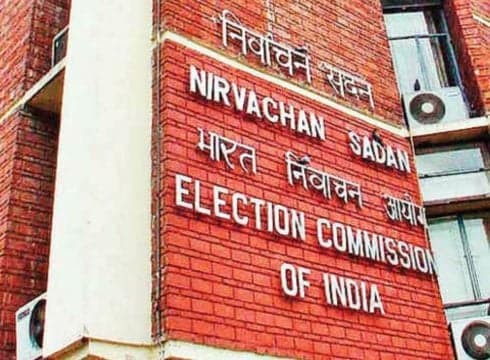The commission has been vigilant about misleading news spread on social media
The commission has already appointed three nodal officers in Delhi
Social media companies signed a voluntary code of conduct under IAMAI
Inc42 Daily Brief
Stay Ahead With Daily News & Analysis on India’s Tech & Startup Economy
Ahead of the general elections, the Election Commission of India (ECI) has reportedly directed its state level bodies to appoint nodal officers who will be responsible for keeping a tab on the spread of fake news, hate speech and other unlawful content across social media companies.
In a letter to chief electoral officers in states and union territories, ECI has directed that any violation of the model code of conduct on social media platforms should be immediately reported to the grievance officers of the concerned company and the election commission.
In order to keep the social media platforms secure during the elections, the commission has also appointed three nodal officers in New Delhi. These officers should also be informed of code violation cases who will examine the case instantly and write to the companies to take appropriate action after receiving approval of director general (media), reported ET.
In March, social media companies Facebook, WhatsApp, Google, Twitter and Internet and Mobile Association of India (IAMAI) had submitted the “Voluntary Code of Ethics for the General Election 2019” to chief election commissioner Sunil Arora and election commissioners Ashok Lavasa and Sushil Chandra.
The companies had agreed to create a high priority dedicated reporting mechanism for the ECI and also appoint dedicated teams during the elections for taking speedy action during violations.
The code of ethics was formulated after representatives of social media companies such as Facebook, Whatsapp, Twitter, Google, ShareChat, TikTok and BigoTV attended a meeting with Sunil Arora on March 20. During the meeting, Arora had said that this code of ethics will be aimed at preventing inappropriate or objectionable political advertisements.
How Can Social Media Influence The Elections?
According to a report by Statista, the number of internet users in India will reach 638.8 Mn by 2021.
Due to its wider reach, political parties and their followers have taken to the social media sites for campaigning ahead of elections. Earlier in March, Mark Zuckerberg-owned Facebook had revealed that the ruling party Bharatiya Janata Party (BJP) has been leading in the political ad spend on the platform.
According to its official data, BJP and its affiliates accounted for over 50% of the total ad spend as of February while opposition party Congress and its affiliates are at the third position after regional parties.
While heavy campaigning takes place over the social media platform, there is an increased chance of spread of fake news to influence the voting choices of the citizens. Recently it was reported that Facebook had removed over 1,000 pages, groups and accounts for violating Facebook’s security policies. Some of these pages are believed to have links in Pakistan, individuals associated with an IT Cell of the Indian National Congress (INC), and an Indian IT firm, Silver Touch.
Social media’s alarming influence over the general public came sharply into light after nearly 31 people were killed by lynch mobs in several states such as Assam, Maharashtra, Karnataka, Tripura, and West Bengal over a rumour of child kidnapping which was spread using WhatsApp.
Steps Taken By Social Media Companies To Make Elections Safer
In order to gain the trust of the Indian ministries, the companies have introduced several structural changes to make elections safer:
1) Facebook launched an exclusive feature for India named ‘Candidate Connect’ which allows Lok Sabha candidates to record their election manifesto in form of 20 second videos
2) Facebook is also planning to start an operations centre in Delhi, which will work with its offices at Menlo Park, Dublin and Singapore to monitor election content
3) WhatsApp introduced a telephonic tip line for its users to report misleading content and fake news
4) Microblogging platform Twitter expanded its political ads policy and Ads Transparency Centre (ATC) in India
{{#name}}{{name}}{{/name}}{{^name}}-{{/name}}
{{#description}}{{description}}...{{/description}}{{^description}}-{{/description}}
Note: We at Inc42 take our ethics very seriously. More information about it can be found here.


